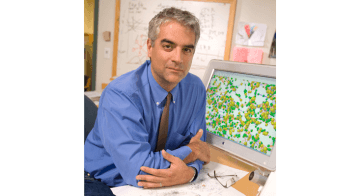Brian Gallagher in Nautilus:
 Nicholas Christakis and I are on the same page: We would definitely sacrifice our lives to save a billion strangers, perhaps even several hundred million, plucked at random from Earth’s population. But, for sure, not a thousand strangers, or a million. Those numbers seem, somehow, too insignificant. Christakis, the director of the Human Nature Lab at Yale University, shared this thought experiment on Twitter a few days ago as a poll that garnered over 2,000 votes: 12 percent would sacrifice their life for one stranger, 31 percent for a thousand strangers, 21 percent for a million strangers, and 35 percent for a billion strangers. “That’s completely implausible. I don’t know what to make of that,” Christakis said of that 12 percent. “I also don’t know what to make of the non-monotonicity of the responses—a larger fraction would sacrifice their life for a thousand people than for a million people. Nevertheless, thousands of people have answered, and it’s interesting to see that quite a few would sacrifice their lives for large numbers of strangers.”
Nicholas Christakis and I are on the same page: We would definitely sacrifice our lives to save a billion strangers, perhaps even several hundred million, plucked at random from Earth’s population. But, for sure, not a thousand strangers, or a million. Those numbers seem, somehow, too insignificant. Christakis, the director of the Human Nature Lab at Yale University, shared this thought experiment on Twitter a few days ago as a poll that garnered over 2,000 votes: 12 percent would sacrifice their life for one stranger, 31 percent for a thousand strangers, 21 percent for a million strangers, and 35 percent for a billion strangers. “That’s completely implausible. I don’t know what to make of that,” Christakis said of that 12 percent. “I also don’t know what to make of the non-monotonicity of the responses—a larger fraction would sacrifice their life for a thousand people than for a million people. Nevertheless, thousands of people have answered, and it’s interesting to see that quite a few would sacrifice their lives for large numbers of strangers.”
Just how self-sacrificial should we be, especially toward people we don’t know? That question is just one of an array of biological and psychological riddles that Christakis tackles in his latest book, Blueprint: The Evolutionary Origins of a Good Society. It is more wide-ranging than his previous book, Connected, co-authored with political scientist James Fowler, which explored the power of social networks in shaping our lives. In Blueprint, Christakis marshals, in engaging and colorful prose, copious amounts of data—much of it stemming from his own lab—to make, in the end, a philosophical point about the fundamental goodness of humanity.
He also relies on his personal experience as a hospice doctor to make his case. “I have held the hands of countless dying people from all sorts of backgrounds,” Christakis writes in Blueprint, “and I do not think that I have met a single person who didn’t share the exact same aspirations at the end of life: to make amends for mistakes, to be close to loved ones, to tell one’s story to someone who will listen, and to die free of pain.” When I spoke to him recently, Christakis told me, “What I’m attempting to do in Blueprint is very much in keeping with my liberal philosophy, which is to regard it as a book of sociodicy. I try to vindicate the existence of society, despite the evils and wrongs in society. It’s an account of why we live socially and why there is good in society, despite the manifest horrors.
More here.
